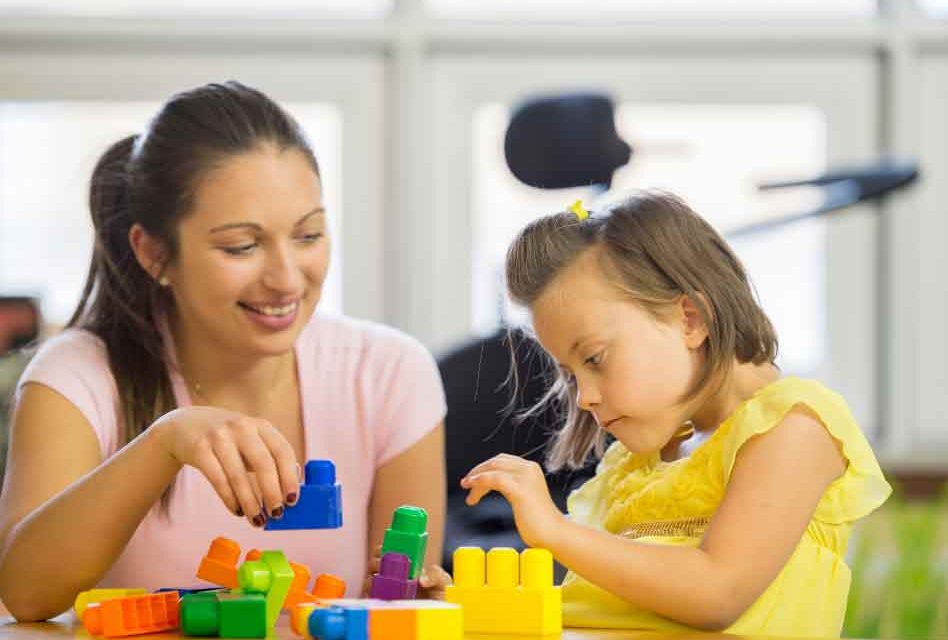How Parenting Influences a Childs Academic Success
Effective parenting styles directly impact your child’s academic success. Setting clear boundaries, providing emotional support, and fostering open communication are essential. Your involvement, encouragement, and positive reinforcement play a significant role in developing study habits and self-esteem. Having high yet realistic expectations coupled with a nurturing environment helps motivate your child towards excellence. By understanding the influence of your parenting on their academic journey, you can guide them towards achieving their full potential.
Key Takeaways
- Effective discipline methods improve academic performance.
- Nurturing environments boost motivation and self-esteem.
- Emotional support and open communication impact success.
- Setting limits and providing structure enhance academic growth.
- Parental involvement, guidance, and expectations influence educational achievements.
Impact of Parenting Styles

The impact of parenting styles on academic success has been extensively studied in various research studies over the past few decades. Discipline methods and creating a nurturing environment are two key elements that shape a child’s educational journey. Effective discipline methods, such as setting clear expectations and consistent consequences, have been linked to improved academic performance.
Children raised in an environment where rules are enforced fairly tend to develop better study habits and time management skills, leading to higher levels of achievement in school. On the other hand, a nurturing environment characterized by emotional support, encouragement, and open communication can greatly impact a child’s motivation and self-esteem, which are essential factors in academic success.
Parents who provide a safe and loving home where their children feel valued and supported often see them thrive academically. This kind of environment fosters a positive attitude towards learning and helps children overcome challenges they may encounter in their academic pursuits. To sum up, the combination of effective discipline methods and a nurturing environment can profoundly influence a child’s academic success.
Role of Parental Involvement
As a parent, your involvement in your child’s academic journey plays an essential role in their success. Supportive behaviors, effective communication, and active engagement are key aspects of parental involvement that greatly impact your child’s academic performance.
Impact of Support
Engaging actively in your child’s academic journey greatly influences their overall success in school. Providing emotional encouragement and academic guidance are vital elements of parental support that have a substantial impact on your child’s educational achievements.
When you offer emotional encouragement, such as praising their efforts, celebrating their accomplishments, and providing a supportive environment, you boost their self-esteem and motivation to excel academically. This positive reinforcement helps them develop a resilient attitude towards challenges and fosters a love for learning.
Additionally, offering academic guidance by assisting with homework, engaging in educational activities, and discussing their educational goals can enhance your child’s understanding of different subjects and improve their study habits. Your involvement in their learning process demonstrates the value you place on education and encourages them to take their studies seriously.
Communication and Engagement
Active communication and engagement between parents and their children play a pivotal role in shaping academic success. By actively listening to your child’s thoughts, concerns, and achievements, you create a supportive environment that fosters their academic growth. Through active listening, you not only understand your child’s academic strengths and weaknesses but also build a strong foundation for effective communication.
Furthermore, providing positive reinforcement can greatly impact your child’s motivation and self-esteem. Praising their efforts, acknowledging their progress, and celebrating their achievements can boost their confidence and encourage them to aim for academic excellence. Your words of encouragement serve as a powerful tool in shaping their attitude towards learning and success.
Engaging with your child in meaningful conversations about their academic goals, interests, and challenges can enhance their problem-solving skills, critical thinking abilities, and overall academic performance. By actively participating in their educational journey, you demonstrate the importance of education and instill a lifelong love for learning.
Influence of Parental Expectations

Parents’ expectations play a significant role in shaping their children’s academic success. Studies have shown that parental expectations influence a child’s cognitive development and academic achievement. When parents set high expectations for their children, it can act as a motivating factor, encouraging students to aim for excellence.
However, excessive parental pressure can have negative consequences, leading to increased stress levels and decreased motivation in students. Research suggests that moderate parental expectations, coupled with support and encouragement, yield the best results in relation to academic success.
When parents believe in their children’s abilities and communicate these expectations positively, students are more likely to internalize these beliefs and work towards meeting them. This positive reinforcement can enhance a child’s self-esteem and confidence in their academic abilities.
Effect of Communication Patterns
Effective communication patterns between parents and children greatly impact academic success by fostering a supportive and nurturing environment for learning and growth. Listening skills play an essential role in these patterns, allowing parents to truly understand their child’s needs, concerns, and academic challenges. By actively listening, parents can provide the necessary support and guidance to help their children succeed academically.
Family dynamics also play a significant role in communication patterns. The way in which family members interact and communicate with each other can greatly influence a child’s academic performance. Open and respectful communication within the family can lead to a more positive and constructive environment for learning.
On the other hand, poor communication patterns, such as lack of active listening or constant criticism, can hinder a child’s academic progress.
Importance of Setting Limits
Establishing boundaries is essential in fostering a conducive environment for academic success. Clear limits provide structure and guidance, helping children understand expectations and consequences.
Consistent rules not only promote discipline but also encourage growth and accountability in their academic pursuits.

Clear Boundaries Foster Learning
Establishing clear boundaries in the parent-child relationship is essential for fostering a conducive environment for learning and academic success. Healthy boundaries provide children with a sense of security, structure, and predictability. By clearly defining expectations, consequences, and limits, parents create a framework within which children can thrive academically.
When children know what’s expected of them and understand the consequences of their actions, they’re more likely to stay focused and engaged in their studies. Research has shown that children raised in environments with well-defined boundaries tend to exhibit greater academic growth compared to those with inconsistent or unclear rules.
Clear boundaries help children develop self-discipline, time management skills, and a strong work ethic – all of which are vital for academic success. Additionally, children who are accustomed to respecting boundaries are more likely to follow instructions, complete tasks on time, and seek help when needed.
Consistent Rules Promote Growth
Clear boundaries set by parents not only provide structure for academic success but also establish a foundation for growth by promoting consistency and setting limits in the parent-child relationship. Discipline balance is essential in shaping a child’s behavior and fostering their academic development. When parents consistently enforce rules and expectations, children learn to understand the consequences of their actions, promoting personal responsibility and accountability.
Routine structure plays an important role in a child’s overall growth and development. By setting consistent rules and boundaries, parents help children understand the importance of organization and time management, skills that are essential for academic success. When children have a predictable routine, they feel more secure and are better able to focus on their studies.
Support for Emotional Well-being

To foster your child’s emotional well-being, consistently providing a safe and supportive environment is essential for their overall development and academic success. Mental health plays an important role in academic achievement, as a stable emotional state can enhance cognitive abilities and learning outcomes.
Emotional support from parents is fundamental in helping children navigate challenges, build resilience, and develop positive coping mechanisms. Research suggests that children who receive adequate emotional support at home tend to perform better academically, showing improved focus, motivation, and self-regulation.
By creating a nurturing atmosphere where your child feels safe expressing their emotions and discussing their concerns, you can positively impact their emotional well-being and academic progress. Encouraging open communication, active listening, and validating your child’s feelings are key components of providing the emotional support they need.
Frequently Asked Questions
How Can Parents Balance Being Supportive Without Being Overly Involved?
You can find a healthy balance by setting clear parental boundaries, offering support, and promoting independence. Encourage open communication, foster self-reliance, and trust your child’s abilities. Stay engaged without taking over, allowing them to grow and learn from their experiences.
What Role Does a Child’s Personality Play in Academic Success?
Your child’s personality traits greatly influence their academic performance. Motivation levels and learning styles are shaped by their unique characteristics. Understanding your child’s personality can help tailor strategies to support their academic success effectively.
Is There a Difference in Academic Outcomes Between Single and Two-Parent Households?
When it comes to family structure, academic performance can vary between single and two-parent households. Research suggests that parental involvement plays a significant role in shaping educational outcomes, regardless of the number of parents in the home.
How Do Cultural Differences Impact Parenting Approaches and Academic Achievement?
When managing cultural differences in parenting, you may encounter communication barriers and expectations discrepancies. These challenges stem from diverse cultural norms and varying levels of academic pressure. Understanding and bridging these gaps is essential.
Can Parenting Styles Change Over Time and Affect a Child’s Academic Progress?
As you reflect on parenting evolution, consider how your changing parenting styles impact your child’s academic growth. Your parental influence is pivotal in shaping your child’s academic development over time. Adapt and grow together.
Conclusion
In summary, your parenting style, level of involvement, expectations, communication, setting of limits, and support for emotional well-being all play a vital role in determining your child’s academic success.
By fostering a positive and supportive environment, you can help your child thrive academically and reach their full potential.
Remember, your actions and behaviors as a parent can greatly influence your child’s educational journey. Stay engaged, communicate effectively, and provide the necessary guidance for their success.

Hey there! 👋 I’m a proud mom and passionate writer, sharing my parenting journey. 📝 Join me as I navigate the ups and downs of motherhood, offering tips, advice, and a sprinkle of humor along the way. 🌟







